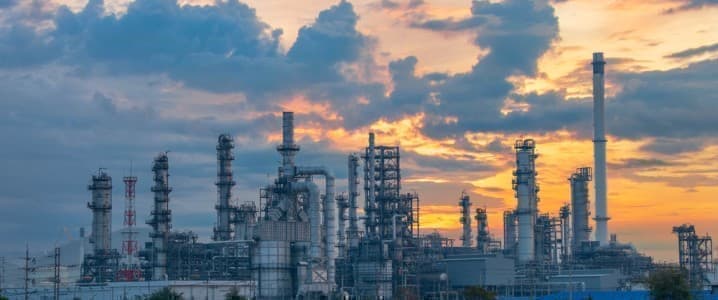Petrochemicals have been driving oil demand in recent years but that could all change if new restrictions come into place to curb the production of plastics and other products. The global demand for petrochemicals has been gradually rising over the last two decades, as an increasing number of consumers spend on petrochemical-derived products. There are fears that the industry could continue to drive demand, keeping the world reliant on fossil fuels, long after we shift away from oil and gas for our energy needs unless policy change happens now.
For several years, leading energy organisations have been saying that petrochemicals will likely lead oil demand for decades to come due to the huge global reliance on products that come from these chemicals. While countries worldwide are moving away from fossil fuels when it comes to fulfilling their energy needs, as many governments accelerate the rollout of renewable energy projects, something that’s proving harder to get away from is plastics and other petrochemical products.
Petrochemicals go into the making of countless everyday items such as clothing, tyres, digital devices, packaging, fertilisers and detergents. By 2018, petrochemicals accounted for 12 percent of the global oil demand. Petrochemicals are viewed by the International Energy Agency (IEA) as an energy demand blind spot, often overlooked by policymakers. The IEA has long been concerned that the massive demand for petrochemicals seen in the Global North will be replicated in developing countries worldwide as they undergo industrialisation.
The global demand for plastics is being driven by growing populations and increasing GDP and wealth, meaning more disposable income for consumer goods. By 2025, plastic production is expected to rise above 600 million metric tonnes a year, which will increase to around double this figure by 2050. Over half of all the plastics produced worldwide so far were manufactured from the year 2000 onwards, contributing significantly to rising oil demand.
It is becoming apparent that the ongoing growth of the petrochemical industry could hinder the green transition if policies are not put in place to curb production. The Beyond Petrochemicals campaign was established in September 2022 with an $85 million investment from Bloomberg Philanthropies, aimed at blocking the expansion of over 120 proposed petrochemical projects in three principal regions – Louisiana, Texas, and the Ohio River Valley.
The group has succeeded in halting the development of the Mountaineer NGL Storage facility in Monroe County, Ohio. The storage was set to hold ethane, butane, and propane derived from fracked gas. It also worked to stop the Appalachian Storage Hub in West Virginia, the PTT Global Chemical ethylene cracker plant in Ohio, and the Formosa Sunshine Plant in and proposed the South Louisiana Methanol complex in Louisiana from becoming a reality. This grassroots action is slowly making policymakers more aware of the growth of the petrochemical industry and its potential challenge to decarbonisation.
In recent years, governments worldwide have also brought in bans on single-use plastics to prevent these products from ending up in landfills. By 2019, over 100 countries had banned or partially banned single-use plastics. Countries around the globe are encouraging plastics producers to make products that can be recycled and consumers to recycle their plastics. Yet, an estimated 85 percent of plastic packaging worldwide ends up in landfills, with the U.S. recycling just 5 percent of its 50 million tons of plastic waste in 2021. Further, recycling practices have also come under scrutiny in recent years due to their high energy use.
There is still little action at the state or regional level to curb the production of petrochemicals. The Ellen MacArthur Foundation is calling for a UN treaty on plastics to legally bind member states to norms on plastics production. But this has not gained much traction. Further, much of the emphasis is on plastics, while petrochemicals go into a wide range of other widely used products.
In many countries, the petrochemical sector falls into the “hard to decarbonise” industry category. Producers are being pushed and incentivised to clean up operations, but little is being done to restrict production. For example, many chemical industry strategies to address environmental concerns rely on feedstock substitution and improved recycling but do not aim to change the production model or chemical products created by the industry. In the U.S. and elsewhere, it is necessary to develop a roadmap to guide the industry into a future where it reduces reliance on fossil fuels and supports international climate aims, as has been seen in other areas of the energy sector.
Petrochemicals continue to drive the global demand for oil, a trend that is not likely to change anytime soon due to the ongoing consumer reliance on many fossil fuel-derived products. Countries and regional organisations must develop a clear strategy to shift reliance away from petrochemicals and curb production if they hope to meet their climate goals. In addition, developing nations must be supported in manufacturing alternative products to prevent a growing dependency on plastics and other petrochemical products.
ADVERTISEMENT
By Felicity Bradstock for Oilprice.com
More Top Reads From Oilprice.com:
- Argentina's Energy Crisis Escalates As Fuel Prices Skyrocket
- What The U.S. Could Learn From European Power Infrastructure
- Africa’s Geothermal Power Sector Set To Overtake Europe



















8,700,000 billion people by 2030.
that's a lot more plastic
But the main driver will always be global transport accounting for 60%. This situation isn’t expected to change much for the foreseeable future. Any government legislations to change the current situation will harm the global economy.
However, plastics currently accounting for 4%-5% of oil demand should be changed from one-time use to multi-use.
Dr Mamdouh G Salameh
International Oil Economist
Global Energy Expert